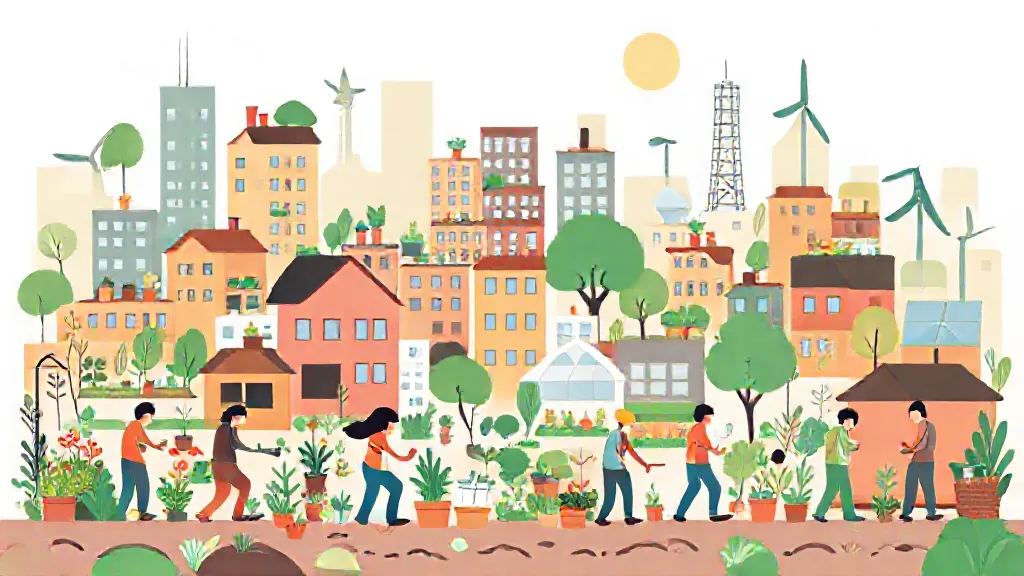In recent years, the urgency of addressing global environmental issues has become increasingly apparent. Climate change, biodiversity loss, and pollution are not merely distant threats; they are immediate challenges that require collective action. However, while international treaties and global initiatives are crucial, it is the local actions that often serve as the bedrock for achieving these global environmental goals.
This article explores the intricate relationship between local initiatives and their broader implications for sustainability.
Local Actions as Catalysts for Change
Local actions refer to the initiatives taken by communities, municipalities, and local organizations to address environmental issues. These actions can range from community recycling programs to urban gardening projects, and their significance lies in their ability to mobilize grassroots support and foster a sense of ownership.
For example, the transition to renewable energy sources often starts at the community level, where local governments can implement solar panel projects or wind farms. Such initiatives not only reduce carbon footprints but also inspire neighboring regions to adopt similar measures.
The Power of Community Engagement
Community engagement is pivotal in driving local actions.
When individuals feel connected to their environment and understand the impact of their actions, they are more likely to participate in sustainability efforts. Educational campaigns, workshops, and local events can raise awareness about environmental issues and empower residents to take action. For instance, the "Plastic Free July" campaign encourages communities to reduce plastic waste through local challenges, leading to significant reductions in plastic consumption.
This grassroots approach demonstrates how localized efforts can contribute to global objectives, such as reducing marine pollution.
Policy Development at the Local Level
Local governments play a crucial role in shaping environmental policies that align with global goals. By implementing regulations that promote sustainability—such as zoning laws that favor green spaces or incentives for energy-efficient buildings—local authorities can create an environment conducive to sustainable practices.
Furthermore, local policies can serve as experimental platforms for larger-scale initiatives. For example, cities like San Francisco have pioneered zero waste policies that have inspired similar movements worldwide, showcasing how local successes can inform and influence global strategies.
The Role of Indigenous Knowledge and Practices
Indigenous communities around the world have long practiced sustainable resource management, and their knowledge is invaluable in the quest for global environmental goals.
Local actions that incorporate traditional ecological knowledge can lead to innovative solutions for contemporary challenges. For instance, the revitalization of indigenous farming practices has proven effective in restoring ecosystems and enhancing biodiversity. By integrating these practices into local actions, communities can contribute not only to their immediate environment but also to global efforts aimed at preserving biodiversity and combating climate change.
Economic Benefits of Local Sustainability Initiatives
Investing in local sustainability initiatives can yield significant economic benefits. Community-led projects often create jobs, stimulate local economies, and reduce costs associated with waste management and energy consumption. For example, urban farming not only provides fresh produce but also fosters local employment and strengthens community ties.
By demonstrating the economic viability of local actions, communities can attract support from businesses and governments alike, further amplifying their impact on global environmental goals.
Measuring Impact: Local to Global
To understand the effectiveness of local actions in contributing to global environmental goals, it is essential to establish metrics for evaluation. Local governments and organizations can employ various indicators—such as reductions in greenhouse gas emissions or increases in recycling rates—to measure progress.
By sharing these metrics with global platforms, such as the United Nations Sustainable Development Goals (SDGs), local initiatives can gain visibility and recognition, further motivating other communities to take action.
Collaboration Across Borders
The interconnectedness of environmental issues necessitates collaboration across borders. Local actions can serve as models for best practices that can be replicated in different contexts.
Initiatives like the "C40 Cities Climate Leadership Group" illustrate how cities worldwide can learn from each other’s local actions, creating a network of shared knowledge and resources. This collaborative approach not only enhances the effectiveness of local initiatives but also strengthens the global movement towards sustainability.
Conclusion: The Path Forward
In conclusion, local actions are not merely supplementary to global environmental goals; they are essential components of a comprehensive strategy for sustainability.
By fostering community engagement, developing supportive policies, and leveraging indigenous knowledge, local initiatives can drive significant progress toward global objectives. As we face increasingly complex environmental challenges, recognizing the power of local actions will be crucial in shaping a sustainable future for all.
